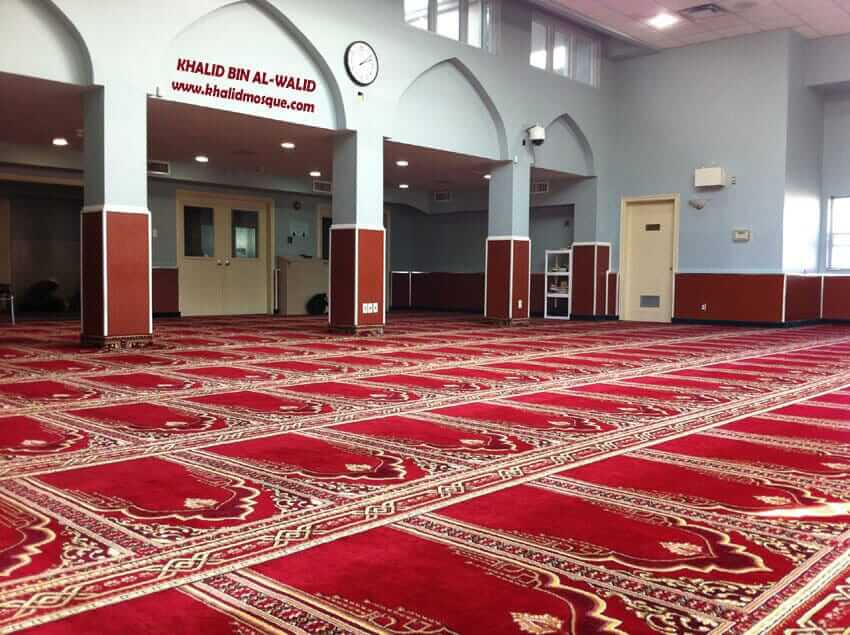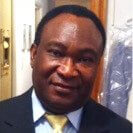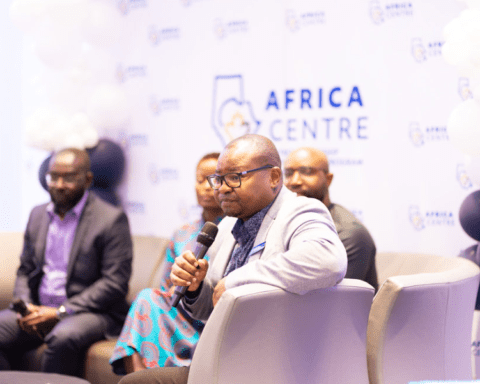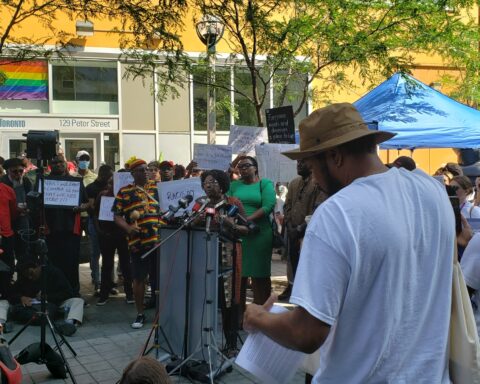In January of 2017, six people were killed and 19 others injured in a mosque in Quebec City by gunman Alexandre Bissonnette, described as a terrorist by some and called a radicalized white supremacist, by others.
In September of the same year, Somali-born Abdulahi Hasan Sharif attacked an Edmonton police officer and injured four pedestrians. An ISIS flag was found in his van.
Apart from these two incidents, Canada has largely been unscathed from radicalization-induced terrorism. However, Muslim and civic leaders in the Toronto area say they are leaving no stone unturned as they continue to do their part taking precautionary measures to prevent the radicalization of their members.
African Muslim community leaders see themselves on the frontlines of this struggle, advocating against the internet as a source of religious teaching, seeing mosques as a key venue for correcting course among the misguided and working in close collaboration with Canadian authorities to identify “bad apples”.
“On our part, we are not taking chances with our members or Somali-Canadians in the GTA,” said Imam Abukar Mohammed of the Khalid Bin Al-Walid Mosque in Etobicoke. “We are proud Canadians, and it’s our duty to protect the values of this country.”
“We have bad apples in every community,” said Imam Mohammed, “Who is to say there’s no one among an immigrant population that doesn’t want to avenge the killing of members of their faith?”
“Whenever violent acts occur, the reverberations are huge for us because we quickly go into teaching mode,” Imam Mohammed explains. “We rally our members and youth in the area to remind them of why they are Muslims in the first place, and we literally beg them to be calm and refocus their energies on forgiveness.”
How Radicalization Occurs
Ali Usman, outreach specialist with the Islamic Education Research Academy in Mississauga, concurs.
“I have personally never run into any radicalized person in our mosques and I have been a Muslim all my life,” Usman said. “I wish these radicalized people would come to the mosque because it would be an opportunity to talk to them and educate them on the true meaning of Islam which is simply peace.”
Most of the congregants at the Khalid Al-Walid Mosque have roots in Somalia, where the organization Al-Shabbab has maimed and killed innocent people.
“We definitely don’t want our youth here in Canada to be radicalized by groups like Al-Shabbab,” Mohammed said. “We tell them here in the masjid (or mosque) that what is going on in Somalia with Al-Shabbab is sinful and that their ideology of extremism cannot be found anywhere in the Quran (Muslim holy book).”
Similarly, Peel Regional Police Sgt. Joseph Cardi says his organization “has established positive relationships with Peel Region’s Muslim community leaders, members, and faith-based clergy”.
In a prepared text, Cardi said the Muslim Advisory Committee of the police department has benefitted immensely from its interaction with the Muslim community in Peel Region through workshops and attending presentations.
“Community members provide us with important information that enables us to better understand community concerns and allow(s) us to develop proactive strategies aimed at mitigating them,” the statement said.
Youth Disenfranchisement
Dr. Hamid Slimi of the Sayeda Khadija Centre in Mississauga says that he believes in the old adage that “prevention is always better than a cure”.
A former President of the Canadian Council of Imams, Dr. Slimi, whose background is Moroccan, said it was somewhat regrettable that his proposal to create “radicalization clinics” in Canada did not take off.
“The problem is kids with environmental/social issues, said Dr. Slimi. “If you look at the age of the people joining ISIS, it’s 16 to 22. Kids are having issues, and they’re not getting the help that they need. It’s not just Muslim kids — look at what’s happening in Attawapiskat! They’re having issues with their schoolwork, their families, with isolation, with economics. They feel disconnected and alone, and this is what ISIS looks for.”
Asked how these clinics would have worked, Dr. Slimi said they would have been like therapy sessions where family members or concerned individuals would alert experts and the clergy about issues they were dealing with in their lives.
He stressed that he had “proposed it merely as a preventative measure — not because radicalization and extremism is unique to Muslims — but because every little help to guide youth in society can go a long way in making them more responsible members of the community.”
The Reality of Terror Threats
An Angus Reid Institute poll in 2018 found that Canadians are a bit more concerned about the threat of radical Islamic terrorism than they are about white nationalist terror. However, according to the Canadian Security Intelligence Service (CSIS) 2015 report, ‘lone wolf” attacks (worldwide) come more often from white supremacists and extreme right-wing groups (17%) than from Muslim radicals (15%).
There were almost twice as many terrorist incidents by right-wing extremists as by Islamist extremists in the U.S. from 2008 to 2016, according to a new report from The Nation Institute’s Investigative Fund and The Center for Investigative Reporting’s Reveal.
Dr. Slimi opined that most radicalization occur on the internet, where extremists “Can make you feel at home, and before you know it you’re wrapped up in their sick world of extremist values.”
“Let no one teach you about Islam on the internet,” said Usman. “If you want to know about Islam just come to the mosque where there are scholars and leaders to guide you. That’s our message to the youth here at the mosque.”
“We tell them life is filled with struggles. We can teach you through the scriptures of the Quran how best to fight these struggles. Listening to people on the internet cannot do that for you,” he said.
White Supremacy and Terror
Since Sept. 11, 2001, almost twice as many people have died at the hands of white supremacists and other non-Muslim extremists than by radical Muslims, the New York Times reported.
Using data compiled by New America, a Washington Research center, a study found that 48 people have been killed by extremists who are not Muslim, compared to the 26 by self-proclaimed jihadists. These statistics reveal a vast difference between public perception and the number of actual cases in which Muslim extremists have claimed lives.
Why aren’t more people outraged about domestic terrorists? Because, then we would have to admit that white supremacy is still a problem. While the public has not quite caught on yet, scholars say that the issue needs addressing.
“There’s an acceptance now of the idea that the threat from jihadi terrorism in the United States has been overblown,” Dr. John G. Horgan, who studies terrorism at the University of Massachusetts said. “And there’s a belief that the threat of right-wing, anti-government violence has been underestimated.”
Opening Communities and Minds
“If someone comes to the mosque,” Imam Mohammed explains, “and the person begins to espouse a teaching of Islam different from what we preach at the mosque, we would stop to quickly correct them.”
He noted that radicalization is experienced not at the mosque but often on the internet where people, who live on the fringes of society, find their distorted view of life.
Imam Mohammed said the police and their Special Investigations Unit (SIU) “are aware of the work we do here. We invite authorities to our mosque so they see the kind of work we do here. We are an open book.”
Peter Uduehi is a journalist and currently publisher and editor of African World News in Toronto. Versed in African and American politics, he has spent most of his adult years in the USA where he studied journalism and later worked as reporter and news editor for several US media outlets before emigrating to Canada 10 years ago.





